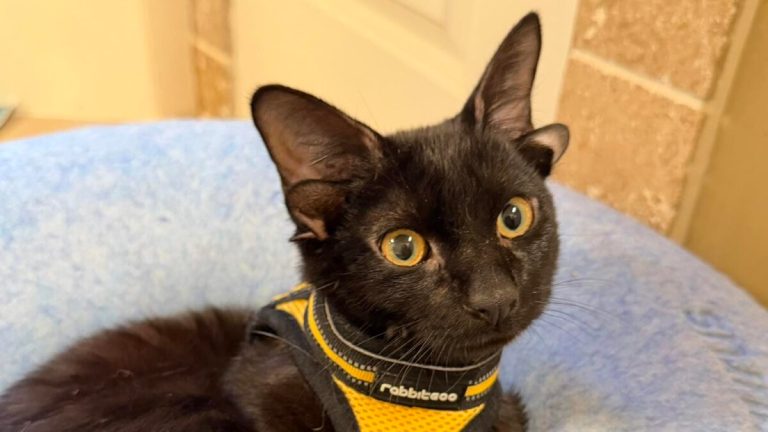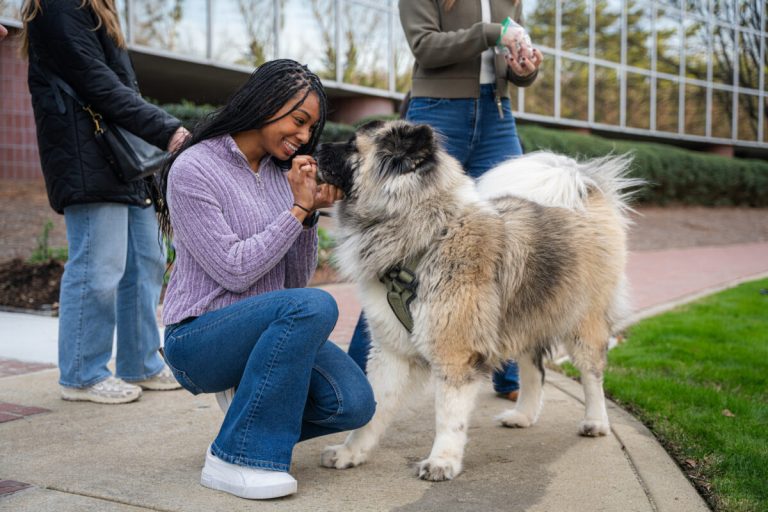7 tips to keep your pet safe during hot Birmingham summers
Reading time: 5 minutes

Temperatures are soaring in Birmingham, which can lead to dangerous situations for outdoor pets. To keep those fur babies happy and healthy during those hot, summer months, here are seven important tips to know.
1. Provide access to shade and fresh water

Cats and dogs may enjoy sunbathing at times, but this is much different than being stuck in constant direct sunlight.
Panting and drinking water are basically the only ways for animals to cool down when they get hot, so it’s important to provide them with plenty of shade and clean drinking water to avoid overheating.
Some pets are more susceptible to heat stroke and should be kept in an air-conditioned room as often as possible. They include animals that are overweight and/or elderly, and those that have heart and/or lung disease.
Animals with flat faces, like Pugs and Persian cats, are unable to pant as effectively as other breeds, so they are also more susceptible to heat stroke.
2. Watch out for sensitive paws

Barefeet on hot asphalt equals ouch! So when temperatures soar, scorching pavement can be a danger to your pets sensitive paws. Not only can it cause burns, but it can also increase body temperature and lead to overheating.
How hot is too hot? According to Caldwell Mill Animal Clinic’s website, here are some quick signs that it’s too hot to take your dog for a walk:
- Use the five second rule to test if the pavement is too hot. Place the back of your hand on the pavement. If you cannot hold it there for five seconds, it’s too hot to walk your dog.
- If your dog is panting heavily within a few minutes of your walk, it is too warm and it’s time to head home.
The solution: Take walks in the shade and at cooler times of the day like early mornings and late afternoons.
3. Don’t leave your pet in the car

Just as children should never be left unattended in a hot car, neither should pets.
It only takes a few minutes for a pet to develop heatstroke and suffocate in a car. Lowering the windows provides little to no help to ease temperatures inside your car either.
The solution: take your pet in with you wherever you go or simply leave them home. Better safe than sorry.
4. Be wary of sunburns

Going out in the sun? Better later on that sunscreen—on you and your pet. Yep, pets are at risk for sunburns, too. This is especially true for pets with short or light-colored fur. Those with no fur are at an even higher risk of burns.
Before you use human sunscreen on your pet, first talk with your veterinarian. They’ll be able to suggest the appropriate product for your pet.
Lastly, you may think that giving your vat or dog a summer fur-cut will help keep them cool. While this may be, it can actually make them more susceptible to sunburns. So before you book that grooming appointment, you may want to hold off.
5. Be proactive—protect from fleas, ticks and mosquitoes

For pets that go outdoors, it’s important to protect them year-round from parasites. So be proactive and treat them for fleas and ticks.
To know the best treatment plan for your pet, speak with your veterinarian.
6. Let them swim

Feline owners, you may want to avoid this tip, or undergo some major catitude.
But, for all you Birmingham canine owners, letting your dog take a refreshing dip in the family pool, lake or even the ocean if you’re on vaca is a great way to keep them cool when it’s H.O.T.
Another brilliant idea is to get a cheap plastic kiddy pool for your yard. Just fill it up and your pup has their very own wading spot.
Before your doggo jumps in, though, be sure they are a good swimmer. They may instinctively know how to dog paddle, but that doesn’t mean they can do it well.
7. Know the signs of heat stroke

When temperatures are high outside, it’s important to be prepared for potential problems regarding your pets health. Here are the signs your pet may be experiencing heat stroke:
- Excessive panting
- Difficulty breathing
- Increased heart rate and respiratory rate
- Drooling
- Mild weakness, stupor and/or collapse
If your pet is experiencing any of these symptoms, remove them from the heat immediately and provide them with water. You should also seek medical attention from your veterinarian.



